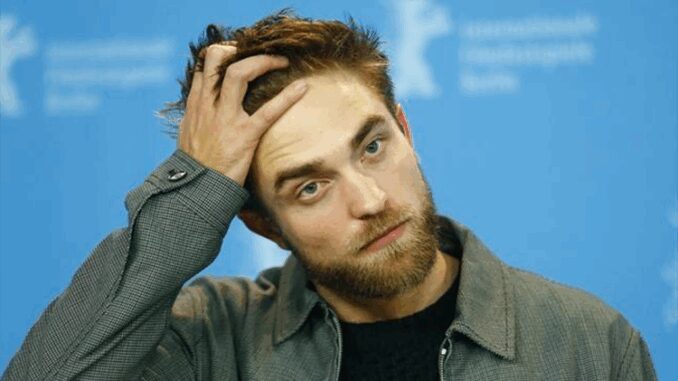
The Enduring Glitter and the Quiet Shrug: Robert Pattinson Beyond the Vampire Wars
Nearly two decades ago, a cultural phenomenon exploded, leaving in its glittering wake not just a passionate fanbase but also a furious debate that echoed through the hallowed halls of gothic lore: Twilight. At its epicentre stood Robert Pattinson, a young actor suddenly thrust into the global spotlight as Edward Cullen, the brooding, eternally conflicted vampire whose skin sparkled in the sunlight. For many, this portrayal was a refreshing, romantic reimagining of a classic monster. For others, particularly purists of the genre, it was nothing short of sacrilege – a betrayal that "ruined" vampires forever. Today, with the passage of almost twenty years, Pattinson’s quiet shrug at this ancient criticism speaks volumes, a testament to the power of time, talent, and profound reinvention.
To understand the weight of that initial backlash, one must first recall the vampire as he was traditionally known. From Bram Stoker’s Count Dracula, a creature of aristocratic menace and primal lust, to Anne Rice’s Lestat, a rockstar of dark sophistication and tortured existentialism, the vampire was an archetype woven from shadows, danger, and forbidden desire. He stalked the night, a harbinger of both terror and dark allure, his fangs a promise of both death and intoxicating intimacy. Sexuality, power, and a chilling sense of otherness were his hallmarks.
Then came Edward Cullen: a high school student, perpetually 17, with a family of "vegetarian" vampires who abstained from human blood. His central conflict wasn't the eternal damnation of his soul or the insatiable thirst for blood, but his burgeoning, deeply chaste love for a human girl. And, most infamously, his skin glittered in the sun. For fans who cherished the gothic gloom and visceral horror, this was a radical, almost comical departure. The whispers began, growing into a roar: Twilight had domesticated the monster, sanitised the dangerous, and replaced ancient dread with teen angst. And Robert Pattinson, the handsome face behind the glittering skin, became the unwilling poster child for this perceived desecration.
For years, the "Twilight ruined vampires" criticism clung to Pattinson like a scarlet letter. His immense fame, born of the films, came with the heavy burden of typecasting. Every interview, every red carpet appearance, every new role was viewed through the lens of Edward Cullen. The young actor, visibly uncomfortable with the rabid fandom and the relentless scrutiny, seemed trapped within the golden cage of his most famous character. One could almost feel his silent yearning to shed the shimmering skin, to prove there was more to him than a romantic, sparkly immortal.
And prove it he did. What followed Twilight was a masterclass in deliberate career reinvention. Pattinson didn't chase blockbusters; he plunged headfirst into the murky, challenging waters of independent cinema, seeking out auteur directors and roles designed to stretch his limits. He worked with David Cronenberg in Cosmopolis and Maps to the Stars, with Werner Herzog in Queen of the Desert. He transformed into a desperate, feral figure in the Safdie brothers’ Good Time, an unsettling lighthouse keeper in Robert Eggers’ The Lighthouse, and a haunted, space-faring convict in Claire Denis’s High Life. Each role was a deliberate chisel, chipping away at the Edward Cullen mould, revealing the raw, complex, and fearless actor beneath. He chose grit over glamour, psychological depth over superficial appeal, gradually building a reputation for daring choices and powerful, often disturbing, performances.
By the time he was cast as Bruce Wayne/Batman, arguably the most iconic and demanding superhero role of a generation, the transformation was complete. It was a role that, in its grim, grounded intensity and psychological darkness, was light years away from the romantic hero he once embodied. His portrayal in Matt Reeves' The Batman was lauded by critics and audiences alike, solidifying his status as a serious, versatile actor capable of inhabiting the darkest corners of human experience. He wasn't just not Edward Cullen; he was unequivocally, powerfully, Batman.
This is the context in which Robert Pattinson can, with the calm assurance of a man who has scaled formidable peaks, finally shrug off the "Twilight ruined vampires" criticism. It's not a dismissive gesture of arrogance, but a quiet declaration of victory. The battle that once raged around him, the indignant cries that sought to define his early career, now seem a distant, almost quaint echo. He has not only outrun the shadow of Edward Cullen but has eclipsed it with a diverse and respected body of work. The criticism, which felt so monumental and defining almost two decades ago, has withered under the twin suns of time and undeniable talent.
His shrug isn't just about his personal journey; it's also a commentary on the fleeting nature of cultural outrage and the evolving landscape of genre fiction. What once felt like a betrayal now simply exists as one interpretation among many in the vast tapestry of vampire lore. For Pattinson, the argument is no longer relevant. He has proven his artistry, defied expectations, and carved out a unique space for himself in Hollywood. The old debates belong to a past generation, a cinematic crucible he survived and, ultimately, transcended. The glittering skin of Edward Cullen may still hold a place in pop culture history, but the man who wore it has long since moved on, content in the knowledge that his own story is far richer, darker, and more profoundly compelling.
